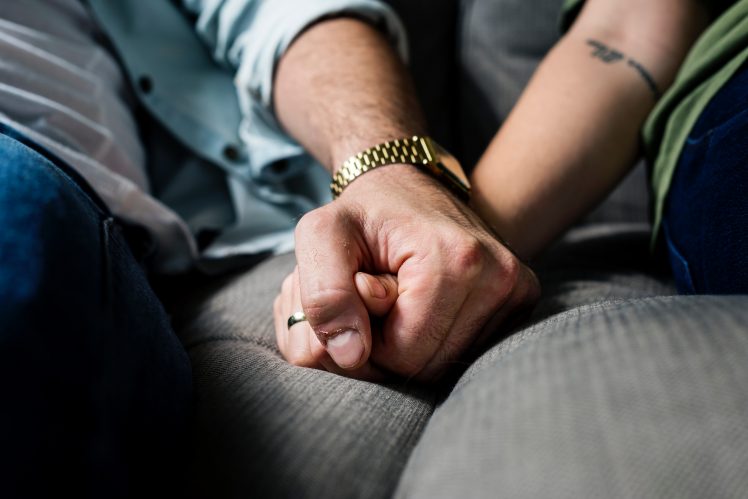Anxiety is a hard thing to experience. Medically, it is described as an emotion characterized by notions of tension and worry and can often induce physical effects like a rise in blood pressure. While occasional anxiety is normal, like anger and sadness, disorders of intense anxiety through persistent and excessive tension can cause lasting effects, of which someone suffering is classified to be anxious.
As one of the prevalent mental stressors of today, it is likely that one in four people you know has had experiences with anxiety to the point of affecting their daily life. As a person around them, you have the power to help!

Recognizing when an attack happens
It’s hard to tell an anxiety attack by sight, mostly because anxiety manifests differently for everyone. Someone suffering an anxiety attack may exhibit physical symptoms, ranging from cold sweats to bodily pains. Some may suffer purely emotional discomfort and tend to express them in outbursts or unresponsiveness.
The first thing to note is that an attack is not something that the person can just snap out of. Some may be verbal about their impending meltdown, while others may keep it quiet as they force themselves to gain control back before inconveniencing you.
Physically, the person will have difficulty breathing, or experience chest pains as their heart rate spikes. Nausea is also a strong symptom, as that person may struggle with stomach or bowel issues. Repetitive tics are quieter, but also a noticeable symptom. They might start unconsciously rocking, fidgeting, or tapping their fingers and feet, or pick at loose threads and hair.
Verbally, the person might engage in unusual levels of interactivity – often needing reassurance through repetitive questioning, acting distressed or fixated, being irritable, overcompensate in action; or even just freeze and be unresponsive, excusing themselves as tired.

Nevertheless, the best way to confirm if the person is having an anxiety attack is simply to ask.
Determining what approach to take
Once you have confirmed that they are having an attack, you have to carefully determine what works best to calm them down.
-
Engaging in conversation
Anxiety makes the mind race and become unfocused. Speak to them to help take their mind elsewhere, to focus on something else besides the fact that they are anxious. Grounding, a technique encouraging simple observation and description has been known to help. Get them to describe something casually, like temperature or colour. Memory games also help. They could simply recite the alphabet or name the members of a band
-
Make their surroundings comfortable
Loud noises, mess, crowds – try to remove the physical discomfort that may trigger them even more. You also should remind them that they do not have to stay for any reason, not even just for courtesy. Be aware that you are also a stimulant! Speak to them gently and reassure them that they are not inconveniencing anyone or anything in that moment.
-
Be an affirming presence
But be careful not to let your own reassuring exhibit like a compulsion. Someone with anxiety experiences heightened sensitivity, and will pick up quickly on your efforts to distract them making less and less sense with each attempt. A safe way to approach this is with mindfulness – encourage them to lay out what they are currently experiencing in detail and respond with support.
-
Suggest a breathing exercise
Breathing is a major factor of discomfort, and they may not realise that they are holding their breath. Encourage them to try breathing in for three seconds, holding for one and breathing out for another three. Repeat until they feel like their chest has stopped hurting, or that they are comfortable enough to take a seat.

It is important to note that some may be less vocal, and would appear strongly to just be left alone. As someone extending support to a person experiencing anxiety, you must stay with them as they are going through something quite traumatising. Stay calm; be available and patient in a casual manner. Try to avoid phrases like ‘calm down’ or ‘just relax’ however because it may seem like you’re brushing it off or being dismissive.
"ExpatGo welcomes and encourages comments, input, and divergent opinions. However, we kindly request that you use suitable language in your comments, and refrain from any sort of personal attack, hate speech, or disparaging rhetoric. Comments not in line with this are subject to removal from the site. "























